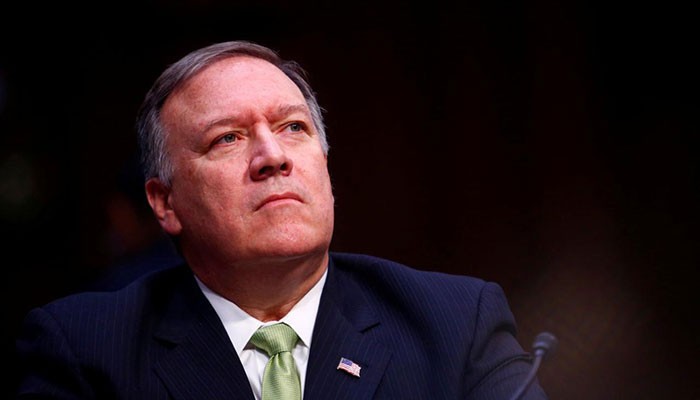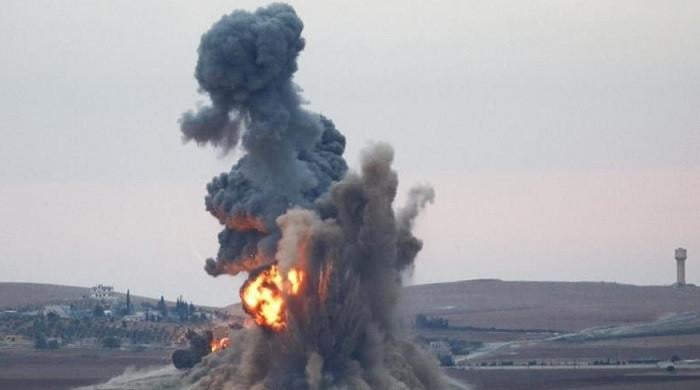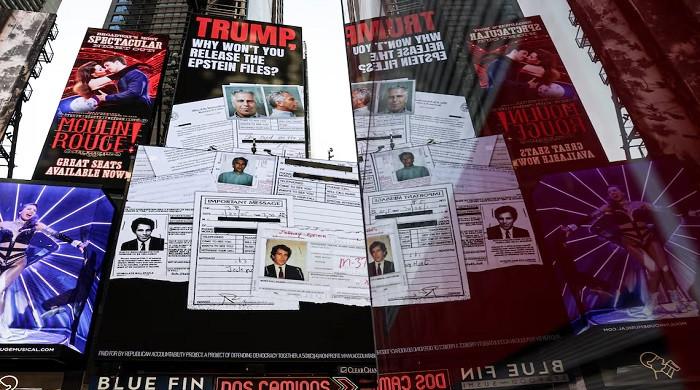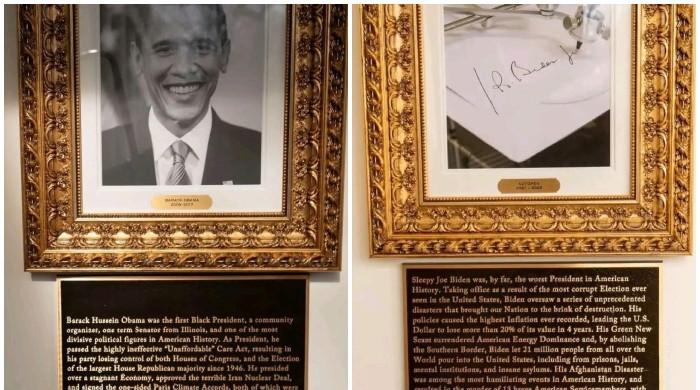Iran issues 'battlefield' warning as US deploys troops
Whoever wants their land to become the main battlefield, go ahead: Iran
September 22, 2019
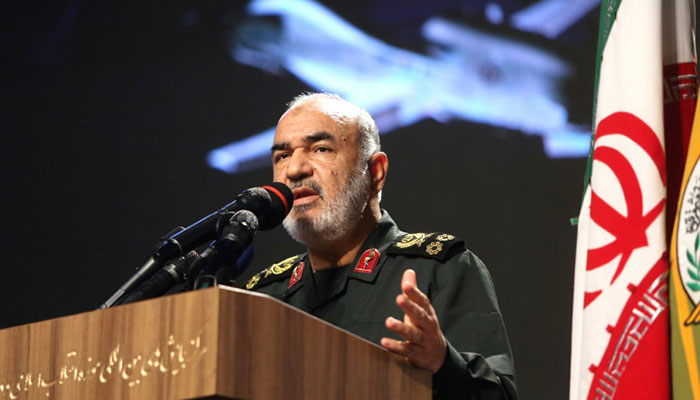
TEHRAN: The leader of the Revolutionary Guards, the Iranian army, warned on Saturday that any country attacking Iran would see its territory become the "main battleground", the day after the announcement of the sending of military reinforcements Americans in the Gulf.
"Anyone who wants his land to become the main battlefield, go ahead," Hussein Salami told a news conference in Tehran a week after attacks on Saudi oil installations claimed by Yemeni rebels but attributed to Tehran by Riyad and Washington.
US Defense Minister Mark Esper denounced Friday a "dramatic escalation of Iranian aggression," and announced that President Donald Trump had approved the deployment of American forces in the Gulf, "which will be defensive in nature."
He explained that this deployment was "a first step" in response to the attacks, at the request of Arabia and the Emirates. The number of troops and equipment sent have not been decided, but it will be a "moderate" deployment, according to the US staff.
"Detention"
The September 14 attacks reduced Saudi oil production, led to soaring oil prices and rekindled fears of a military clash between Washington and Tehran. In June, the destruction of an American drone by Iran had already caused fear of escalation.
"We will never allow a war to encroach on the territory of Iran," General Salami added during the inauguration of an exhibition on drones that Iran claims to have captured.
Debris from the RQ-4 Global Hawk shot down in June and the Iranian missile used to shoot it and an intact RQ-170 Sentinel captured in 2011 were unveiled.
"What are your drones doing in our airspace? We will shoot them down," the general said, saying Iran had defeated "American technological dominance".
On the Saudi side, diplomat number two, Adel al-Jubeir, warned that his country would take "appropriate measures" after the September 14 attacks once the UN investigation has determined where the attacks came from. shots.
Iran's top diplomat, Mohammad Javad Zarif, said on Thursday that a Saudi or US riposte in Iran would lead to a "total war," but said his country does not want war but will defend itself if needed.
US Secretary of State Mike Pompeo called Wednesday the attacks "act of war" but said the next day that Washington favoured a "peaceful solution."
US President Donald Trump has been less and less inclined to military reprisals.
"There has never been a country more prepared," he warned Friday. "It would be the easy way for me", "hit 15 major sites in Iran (...) But that's not what I prefer," he chained, winding a "restraint".
Against all odds, Yemeni Houthi rebels also adopted a less bellicose attitude on Friday by considering stopping attacks on Saudi Arabia to end a five-year conflict in Yemen, where Riyad is fighting them in support of the Yemeni government.
United States "desperate"
Tensions have risen steadily between Tehran and Washington since the US unilateral withdrawal in May 2018 of the Iranian nuclear deal reached in 2015, followed by the reinstatement of heavy US sanctions against Iran.
On Friday, Donald Trump announced new sanctions on the Iranian banking sector, including the Central Bank. "There will be no more money going to the Revolutionary Guards (...) to finance terrorism," said Treasury Secretary Steven Mnuchin.
Zarif, in New York before the UN General Assembly, said "the US is trying to block access to food and medicine for Iranians."
These new sanctions show that the United States is "desperate" and that "their maximum pressure policy (against Iran) has reached its limits," he said, according to the semi-official Isna news agency.
Iran has also denied Saturday that it has suffered a cyberattack against its oil facilities after disruptions in the connection were reported on online platforms.


